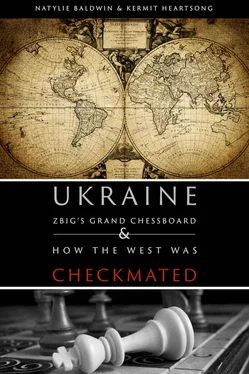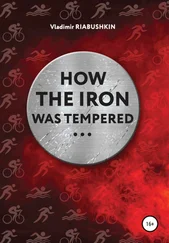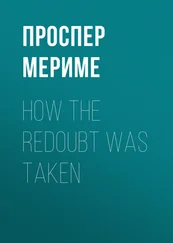Kermit Heartsong - Ukraine - ZBIG's Grand Chess Board & How The West Was Checkmated
Здесь есть возможность читать онлайн «Kermit Heartsong - Ukraine - ZBIG's Grand Chess Board & How The West Was Checkmated» весь текст электронной книги совершенно бесплатно (целиком полную версию без сокращений). В некоторых случаях можно слушать аудио, скачать через торрент в формате fb2 и присутствует краткое содержание. Год выпуска: 2015, Жанр: Политика, на английском языке. Описание произведения, (предисловие) а так же отзывы посетителей доступны на портале библиотеки ЛибКат.
- Название:Ukraine: ZBIG's Grand Chess Board & How The West Was Checkmated
- Автор:
- Жанр:
- Год:2015
- ISBN:нет данных
- Рейтинг книги:4 / 5. Голосов: 1
-
Избранное:Добавить в избранное
- Отзывы:
-
Ваша оценка:
- 80
- 1
- 2
- 3
- 4
- 5
Ukraine: ZBIG's Grand Chess Board & How The West Was Checkmated: краткое содержание, описание и аннотация
Предлагаем к чтению аннотацию, описание, краткое содержание или предисловие (зависит от того, что написал сам автор книги «Ukraine: ZBIG's Grand Chess Board & How The West Was Checkmated»). Если вы не нашли необходимую информацию о книге — напишите в комментариях, мы постараемся отыскать её.
Ukraine: ZBIG's Grand Chess Board & How The West Was Checkmated — читать онлайн бесплатно полную книгу (весь текст) целиком
Ниже представлен текст книги, разбитый по страницам. Система сохранения места последней прочитанной страницы, позволяет с удобством читать онлайн бесплатно книгу «Ukraine: ZBIG's Grand Chess Board & How The West Was Checkmated», без необходимости каждый раз заново искать на чём Вы остановились. Поставьте закладку, и сможете в любой момент перейти на страницу, на которой закончили чтение.
Интервал:
Закладка:
The concrete policy of regime change has been traced back, according to investigative journalist Robert Parry, to the role of several of the above named Neocon politicians' work on behalf of Israeli hardliner Benjamin Netanyahu's 1996 campaign to become prime minister. As advisors to Netanyahu, they formulated a strategy published under the name “A Clean Break: A New Strategy for Securing the Realm.”
The idea behind this strategy was to undermine good faith negotiations, whereby the Palestinians may secure anything resembling a functioning and sovereign state, by destroying the leadership of countries sympathetic to and supportive of Hamas or Hezbollah by way of regime change interventions. The nations included Iraq (then led by Saddam Hussein), Syria under the Assads, and Iran.
While the overt intervention in Iraq and the covert intervention in Syria have resulted in chaos and suffering for the people living there, that chaos has benefitted Israel as Perry points out:
In the end, the regional chaos has helped Prime Minister Netanyahu starve the Palestinians of the financial support they once had, supposedly making them more susceptible to whatever demands the Israelis choose to make. And it has given Netanyahu a freer hand to engage in periodic slaughters of Gazan militants, a process the Israelis call “mowing the grass.” (Parry 2014)
The Neocon’s unequivocal support for Israel has been observed by others, some even suggesting that there is such a blurred line among Neocons between the Israeli government's interests and the US’s interests that the two are often conflated.
Former CIA analysts Kathleen and Bill Christison, in their 2002 Counterpunch article, “A Rose by Another Name: The Bush Administration's Dual Loyalties,” noted that from the 1990s onward, there was an increasing trend toward not even making any pretense of balance on the Israel-Palestine issue.
In the Clinton administration, the three most serious State Department officials dealing with the Palestinian-Israel peace process were all partisans of Israel to one degree or another…[But] the link between active promoters of Israeli interests and policy-making circles is stronger by several orders of magnitude in the Bush administration, which is peppered with people who have long records of activism on behalf of Israel in the United States, of policy advocacy in Israel, and of promoting an agenda for Israel often at odds with existing US policy. (Christison 2002)
Douglas Feith, who helped develop the Clean Break strategy for Netanyahu, later contributed to the fabrications that enabled the invasion of Iraq in 2003 by setting up the Office of Special Plans in the Defense Department through which he funneled his own “unverified” intelligence, reminiscent of the fantasies and falsehoods churned out by the Neocons for Team B during the Ford administration (Christison 2002).
Robert Kagan and Victoria Nuland
Robert Kagan, a Neoconservative writer and historian, is not a direct disciple of Strauss, but he buys into the basic Neocon myths about the end of the Cold War; the good versus evil political framework of international politics, and that America always represents the good and, hence, has a duty to intervene on behalf of remaking the world in its own image via regime change.
Kagan is perhaps most infamous for co-founding, along with William Kristol, the think tank Project for a New American Century (PNAC) in 1998. One of PNAC's main projects was to encourage a policy of regime change in Iraq via publication of policy papers and political lobbying. It wasn't until Bush II occupied the White House that they would find a receptive audience.
Kagan's views developed while serving as a policy staffer in the State Department during the Reagan administration where he later became a speechwriter for Secretary of State George Schultz. His thinking and experience culminated in an article published by Foreign Affairs magazine in 1996 in which he lamented “America's reduced role in a post-Cold War world.” Instead he suggested America should serve as a “benevolent global hegemon.”
Despite the fact that, by any reasonable standard — such as the reality that most of his predictions about regime change and war in Iraq have been proven to be completely wrong— his basic ideas have not fundamentally changed, nor have they ceased to be taken seriously in Washington.
Kagan still believes the US has a legitimate duty to expand its power and dominion throughout the world in pursuit of “common universal values,” which is still code for our definition of democracy and free market institutions (Beaumont 2008).
With new opportunities for the spreading of chaos and destabilization via regime change having exhausted themselves temporarily in the Middle East by 2008, Kagan began transposing his theme of bringing good old American “democracy” by force to a different geographic area: Eurasia.
As he told Peter Beaumont of The Observer that year, “Democracies need to be working together to promote their fundamental values in the new confrontation with the globe's newly confident autocracies” (Beaumont 2008).
Those “newly confident autocracies” he was referring to were Russia and China.
Around this same time, Kagan served as a foreign policy advisor to John McCain, who has consistently expressed public hostility toward Russia.
More recently, Kagan has been busy spewing his interventionist ideology in media outlets such as The New Republic and the Washington Post . The latter published a column in July of 2014 in which Kagan made the following comment:
In my view the willingness of the United States to use force and to threaten to use force to defend its interests and the liberal world order has been an essential and unavoidable part of sustaining that world order since the end of WWII. (Kagan 2014)
Apparently, Kagan missed the history lesson on US interventions since WWII that have removed democratically elected leaders and replaced them with brutal dictators (e.g., Iran in 1953 and Chile in 1973) and the American provision of support for paramilitaries who slaughtered anyone suspected of opposing their agenda (e.g. Central America in the 1980s)(Blum 2000). As a reputed historian, he also seems to have missed the fact that there is no historical evidence that a functioning democracy can be imposed by an outside force. Furthermore, the theory of democratic peace that he implicitly believes in has been shown to be erroneous. Two nations both having some form of democratic government is no guarantee that they will not go to war (Wikipedia, “List of Wars Between Democracies”).
In response to Kagan's essay in the May 2014 issue of The New Republic , “Superpowers Don't Get to Retire,” Obama said he wanted to have lunch with Kagan to compare world views.
Kagan is now starting to distance himself from the label “Neoconservative” and has publicly stated that he prefers to be called a “liberal interventionist.” Moreover, he has maintained bipartisan connections by serving on a civilian advisory board for Hillary Clinton during her tenure as Secretary of State. He has even intimated that he may support her if she runs for president in 2016:
I feel comfortable with her on foreign policy. If she pursues a policy which we think she will pursue, it's something that might have been called neocon, but clearly her supporters are not going to call it that; they are going to call it something else. (Horowitz 2014)
In regards to the Ukraine crisis, he has pushed the standard line of misinformation and distortion and used it as a pretext to justify a more muscular and interventionist policy in Eurasia:
When Vladimir Putin failed to achieve his goals in Ukraine through political and economic means, he turned to force, because he believed that he could. What might China do were it not hemmed in by a ring of powerful nations backed by the United States? (Kagan 2014)
Читать дальшеИнтервал:
Закладка:
Похожие книги на «Ukraine: ZBIG's Grand Chess Board & How The West Was Checkmated»
Представляем Вашему вниманию похожие книги на «Ukraine: ZBIG's Grand Chess Board & How The West Was Checkmated» списком для выбора. Мы отобрали схожую по названию и смыслу литературу в надежде предоставить читателям больше вариантов отыскать новые, интересные, ещё непрочитанные произведения.
Обсуждение, отзывы о книге «Ukraine: ZBIG's Grand Chess Board & How The West Was Checkmated» и просто собственные мнения читателей. Оставьте ваши комментарии, напишите, что Вы думаете о произведении, его смысле или главных героях. Укажите что конкретно понравилось, а что нет, и почему Вы так считаете.











